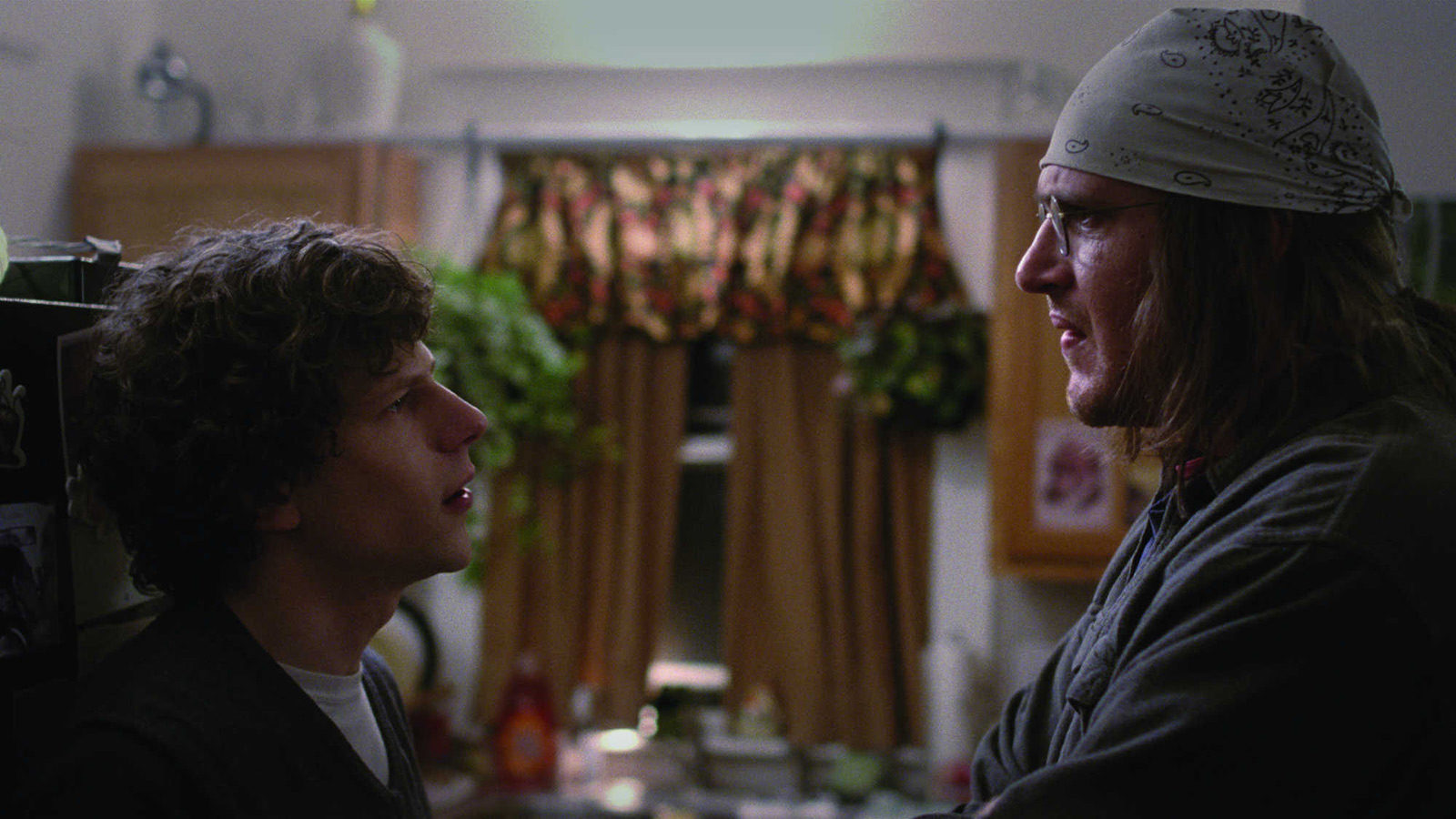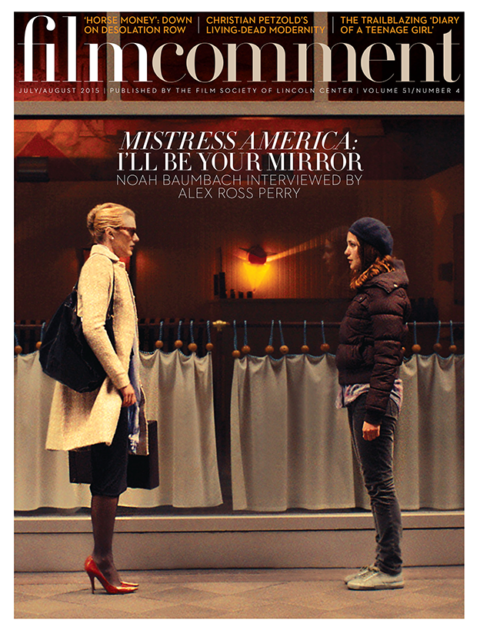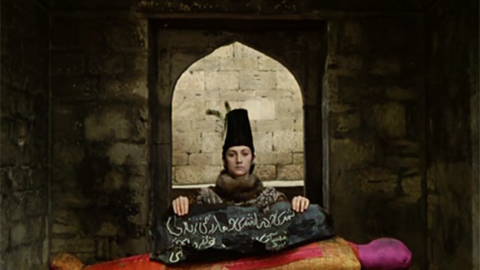
Review: The End of the Tour
“You don’t crack open a thousand-page book because you heard the author was a regular guy,” a journalist posits. “You do it because he’s brilliant.” Of the many perfectly judged decisions in James Ponsoldt’s The End of the Tour, the most astute is presenting the thorny coexistence of both attributes in the late David Foster Wallace, a pop-culture enthusiast and junk-food maven who produced a tome so vast and ambitious as to require new terminology for classification. The Wallace of the film is not a genius who affects regular guy-ness, despite charges to the contrary. He’s a skeptical prodigy whose fear of fraudulence prevents him from comfortably inhabiting his skin, but allows him to diagnose and divine cultural breakdown with blinding perspicacity.

Playwright Donald Margulies (Dinner with Friends) adapts David Lipsky’s book Although of Course You End Up Becoming Yourself, about Lipsky’s five days on the road with Wallace in 1996 as the latter is winding down his promotional tour for Infinite Jest. Lipsky (played here by Jesse Eisenberg) is a contributing writer for Rolling Stone who persuades his editor to authorize an unheard-of profile of a writer, shadowing Wallace (Jason Segel) across the Midwest at book signings and other appearances with which the 34-year-old sensation is profoundly uncomfortable. Along the way they engage in what Lipsky would later call the best conversation he ever had.
While Lipsky is envious of Wallace’s gifts and fame and Wallace has been mischaracterized in print once too often to trust his touring companion, their encounters are not fraught with bitterness and betrayal, nor do they collapse into buddy road-movie vignettes (though the pair banter winningly about dogs and Die Hard). More intriguingly, the wordsmiths wrestle with questions seldom broached in writer biopics: whether enjoyment of success is anathema to legitimacy (Wallace bracingly claims he would rather be dead than become a fixture at cocktail parties), the difference between foibles and pretensions (the image-conscious Wallace is dismayed to learn his ever-present headbands are an object of scrutiny), and the disappointment endemic to achieving society-set goals (a prevalent theme in his work). Meanwhile, Lipsky tiptoes around the delicate issues of Wallace’s depression and rumored heroin use.

In his prior films, Smashed (12) and The Spectacular Now (13), Ponsoldt has revealed great sensitivity to human frailty, notably addiction and anxiety, and here tenders his most developed examination of those themes to date. (It helps that the new film is structured as a dialogue, so that his themes can be articulated with minimal contrivance.) Margulies’s script eschews biographical clichés with the exception of the framing device that finds Lipsky revisiting his notes in 2008, on learning of Wallace’s suicide. The wraparound has become as grievous a crutch as voiceover; we don’t need to see a character reflecting on the events of the story a dozen years later to intuit their significance, nor do we need further words eulogizing Wallace after the nuanced delineation he’s already received.
Eisenberg’s casting teeters on too perfect. He may currently be the best young actor working within the narrowest range—though, to his credit, he finds new ways to enact restiveness and competitive brilliance with each role he takes on. The choice of Segel is both startling and absolutely intuitive. Even at his silliest there’s always been something plaintive about him—and something haltingly endearing, prone to security blankets (The Muppets), mired in mainstream culture but thoughtful about its implications. Here he culls all his known facets and many we haven’t seen before to show us the genius and the regular guy, not at war but not at peace either. It’s one of the year’s great performances.




